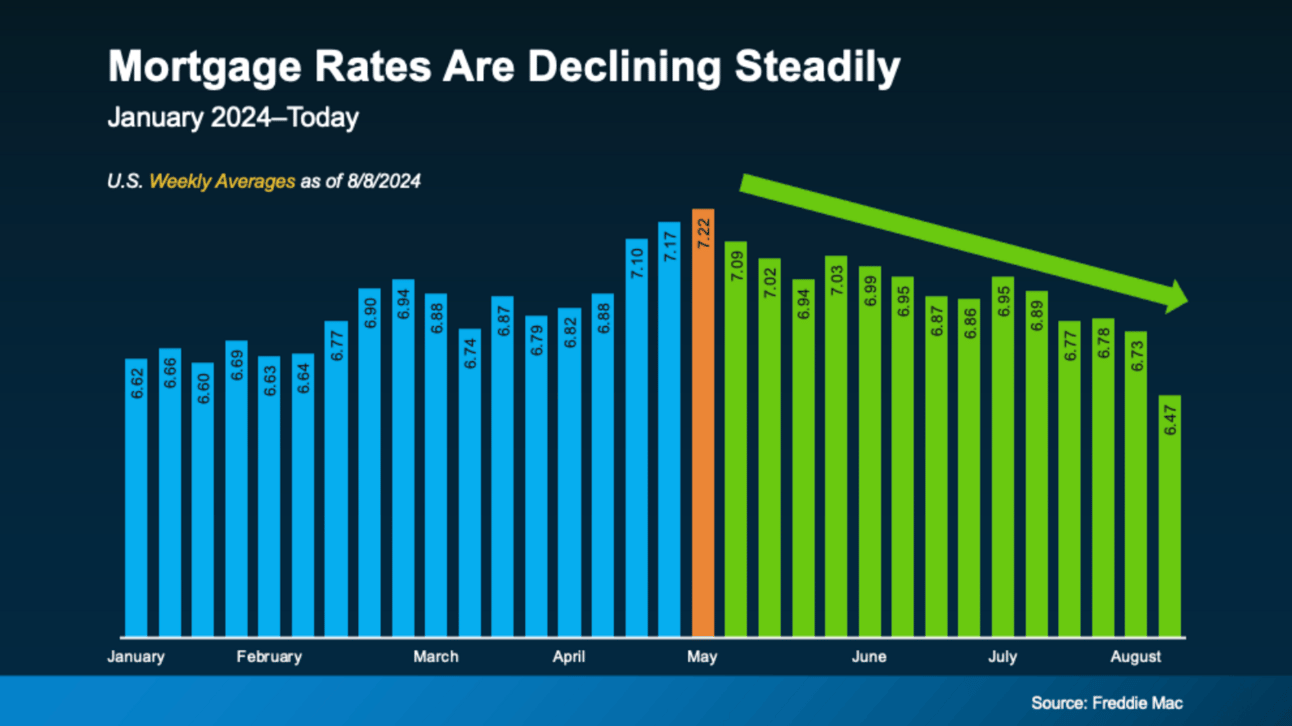
We appreciate each and every one of you for taking the time to read Market Minds. Buckle up and enjoy the free value - this one is a longer one, but we promise it’s worth the read…
Agents Aren’t Going Extinct - They’re Just Evolving

Source: BAM
Last week, a Fortune headline delivered the latest in a string of media jabs at real estate agents: “Real-estate agents are going extinct just like travel agents did.” Michael Ketchmark, the attorney leading the Sitzer/Burnett lawsuit against real estate commissions, echoed this sentiment, suggesting that the internet and the free market will make agents obsolete.
But here’s the thing—these doom-and-gloom predictions aren’t new. People have been saying the same about travel agents for years, and guess what? Travel agents are still here. In fact, the ones who adapted to the digital age are thriving. And there’s a lesson in that for real estate professionals.
The Travel Industry’s Shake-Up
Let’s take a trip back to 1990. At the time, about 132,000 travel agents were working across the U.S. But then came the internet, shaking up the industry. By 2014, the number of agents had dropped to 74,000. Many assumed this was the beginning of the end. The same narrative that’s now being applied to real estate agents.
But here’s the twist. The travel agents who stuck around didn’t just survive—they thrived. How? They adapted. They pivoted from simply booking trips to offering personalized, high-touch services that no website could match. They embraced the internet as a tool rather than a threat and capitalized on its limitations by focusing on value-added services.
What Does This Mean for Real Estate Agents?
Real estate agents, like travel agents, face a choice: adapt or fade into irrelevance. The internet has undeniably changed the game, but it hasn’t eliminated the need for expert advice and personalized service. The proof? Despite the rise of Zillow and other online platforms, 89% of buyers are still choosing to work with agents, according to the latest Profile of Home Buyers and Sellers Generational Trends report.
But let’s be honest: not every agent will make the cut. The ones who survive will be those who lean into change and focus on the human elements that can’t be digitized.
Embrace Service, Not Just Sales
So, what should real estate agents learn from the travel industry? It’s simple: service over sales. Consumers are swimming in a sea of online information, but they’re often drowning in it. Agents who succeed will be the ones who help buyers and sellers cut through the noise. They’ll focus on personalized service, expert advice, and building relationships.
Sara Ryan Duffy, a successful luxury travel agent, offers a masterclass in this approach. She focuses on her clients’ specific needs, digs deeper than any algorithm can, and builds lifelong loyalty through exceptional service. The result? Her business is thriving even as online travel portals dominate the industry.
Real estate agents who follow this model—focusing on value rather than just transactions—will carve out their place in the future. After all, buyers and sellers still need someone who knows the ins and outs of the market, who can navigate complex transactions, and who can provide guidance that no AI can replicate.
The Future of Real Estate Agents
Yes, the number of real estate agents may decline in the coming years. The same thing happened to travel agents. But those who remain will redefine the industry. They’ll be the agents who adapt, who see the chaos of change as an opportunity, and who understand that their true value lies in what they bring to the table that a website or an AI never could: expert, personalized service.
Real estate isn’t just about closing a sale; it’s about being a trusted advisor. The agents who embrace this will not just survive—they’ll thrive.
So, are you ready to evolve? Or are you going to let the industry leave you behind?
Affordability Shows Signs of Improvement

Source: Freddie Mac/KCM
Buying a home has felt like chasing a moving target over the last couple of years. With mortgage rates skyrocketing and prices inflating faster than a college keg party story, it's been a tough market for hopeful buyers. But, take heart—there’s a subtle shift underway that could make homeownership a bit more achievable in the coming months.
“Housing affordability is improving ever so modestly, but it is moving in the right direction.”
Let’s break down the key factors driving this modest improvement: mortgage rates, home prices, and wages.
1. Mortgage Rates: The Roller Coaster Slows
Mortgage rates have been the unpredictable villain of the story—up, down, and all over the place this year, ranging from the mid-6% to the low 7% range. However, there’s finally some good news. According to Freddie Mac, mortgage rates have been trending downward since May.
This drop comes thanks to cooling economic, employment, and inflation data. And while some volatility will likely persist, experts say that if the economy keeps showing signs of calming down, mortgage rates could continue to inch lower.
Even a small dip in rates can have a big impact on your buying power. For instance, a slight decrease in the mortgage rate could reduce your monthly payment, giving you a little extra breathing room in your budget. No, we’re not going back to those 3% rates we all loved, but the trend is heading in a buyer-friendly direction.
2. Home Prices: Slowing Down but Still Climbing
While home prices are still rising nationally, they aren’t climbing at the turbocharged pace we saw during the pandemic. That’s good news for buyers who were previously priced out of the market.
According to Case-Shiller data, home price growth is slowing—finally catching its breath after a feverish race over the past couple of years. Slower price appreciation means that the dream of homeownership, though still challenging, may no longer feel entirely out of reach.
As Odeta Kushi, Deputy Chief Economist at First American, notes:
“While housing affordability is low for potential first-time home buyers, slowing price appreciation and lower mortgage rates could help – so the dream of homeownership isn’t boarded up just yet.”
3. Wages: A Quiet Hero in the Background
Wages have been steadily climbing, and lately, they’ve been moving faster than usual. According to the Bureau of Labor Statistics (BLS), income growth has been outpacing the typical yearly increase. This uptick in wages is a quiet but significant factor in the affordability equation.
As your income rises, you’ll spend a smaller percentage of your paycheck on that monthly mortgage bill. That means more money stays in your pocket—whether to build equity in your home or just to cover life’s other expenses.
Bottom Line: A Market Slowly Becoming More Accessible
Yes, affordability is still a challenge, but the landscape is shifting. Mortgage rates are gradually cooling, home prices aren’t rising as fast, and wages are going up faster than expected. If these trends continue, we could see the dream of homeownership become more attainable for many would-be buyers.
Is the market perfect? Not by a long shot. But the tide is turning, and that’s a reason to keep your eye on the prize.
Metro Detroit Realtors Push Back Against Mandatory Membership Rules

Source: TRD
In metro Detroit, a coalition of real estate professionals has launched a legal challenge that could shake up the industry. Brokers Douglas Hardy, Glenn Champion, and Dylan Tent, all with Signature Sotheby’s International Realty, have filed a federal lawsuit in Detroit, aiming to end mandatory membership in organizations like the National Association of Realtors (NAR) and local realtor boards.
Their argument? Mandatory membership is no longer financially justifiable and limits brokers’ operational freedom. These professionals assert that access to crucial tools—specifically the Multiple Listing Service (MLS), which is essential for conducting real estate transactions—shouldn't be tied to membership in these organizations. They claim that being forced to join undermines their business by imposing unnecessary costs and restrictions.
A Nationally Relevant Battle
This lawsuit isn’t just a local skirmish; it’s part of a larger national conversation. The real estate industry is facing seismic regulatory changes, particularly in the wake of the Sitzer/Burnett ruling against the NAR and the subsequent settlement with home buyers. The plaintiffs in Detroit are tapping into the momentum created by these industry-wide shifts, arguing that brokers and agents should be able to access MLS services without being tethered to professional organizations that no longer provide clear value.
The defendants, including NAR, the Michigan Association of Realtors, and several regional boards, argue that mandatory membership is essential. They contend that these organizations uphold industry standards and provide critical resources that justify the membership requirements. Brian Westrin, General Counsel for Michigan Realtors, is leading the defense, while the plaintiffs are represented by Michael Clawson of Michael S. Clawson PLLC.
Tensions Rise as NAR Reforms Loom
The timing of this lawsuit couldn’t be more critical. On August 17, the NAR will implement new reforms that prevent real estate agents from posting commission plans on the MLS. Instead, commissions will now be negotiated directly between buyers and sellers. These changes are intended to boost transparency and competition, but they also add a layer of complexity to an already regulated market. The plaintiffs’ lawsuit reflects broader concerns within the industry about the necessity—and the value—of these professional memberships in an era of reform.
The Broader Impact
As the real estate industry adjusts to new regulations, this lawsuit could serve as a catalyst for further legal challenges across the country. Brokers and agents are increasingly questioning the role and influence of large real estate organizations, particularly as the market becomes more competitive and transparent. If the court sides with the plaintiffs, it could trigger a reevaluation of how MLS access is granted and how professional organizations like the NAR function in this new landscape.
In short, this legal battle could be a turning point, potentially reshaping the rules that govern real estate transactions and redefining the relationship between professionals and the associations that have long dominated the industry.
We’re Giving it All Away…
Join our private group for collaboration-driven real estate agents and investors aiming to iterate FASTER and SCALE, which also gives our readers an opportunity to connect.
We've curated resources from the top agents in the country with ACTIONABLE resources to implement TODAY.
We use a tiered pricing model in which the price increases as more people join. Join today and lock your price in for life.
See you inside 💪
You Know What They Say About Texas…
This Boerne, TX home is sadly off the market, but as you can see—they take pride in having a backyard that is bigger and better than most.
TL;DR (Too Long; Didn’t Read)
Despite predictions that real estate agents will go extinct due to technological disruption, much like travel agents, those who adapt and provide personalized service are thriving. Real estate professionals who embrace change and focus on adding value beyond what technology can offer will continue to succeed, just as 89% of buyers still prefer working with agents despite online platforms like Zillow. Additionally, housing affordability is slowly improving as mortgage rates stabilize, home price growth slows, and wages rise, making homeownership more attainable. Meanwhile, a legal challenge in Detroit questions the necessity of mandatory memberships in real estate organizations, reflecting broader industry concerns about the evolving landscape and regulatory reforms.
Have a great weekend - we’ll see you next Saturday.
Cheers 🍻
-Market Minds Team


